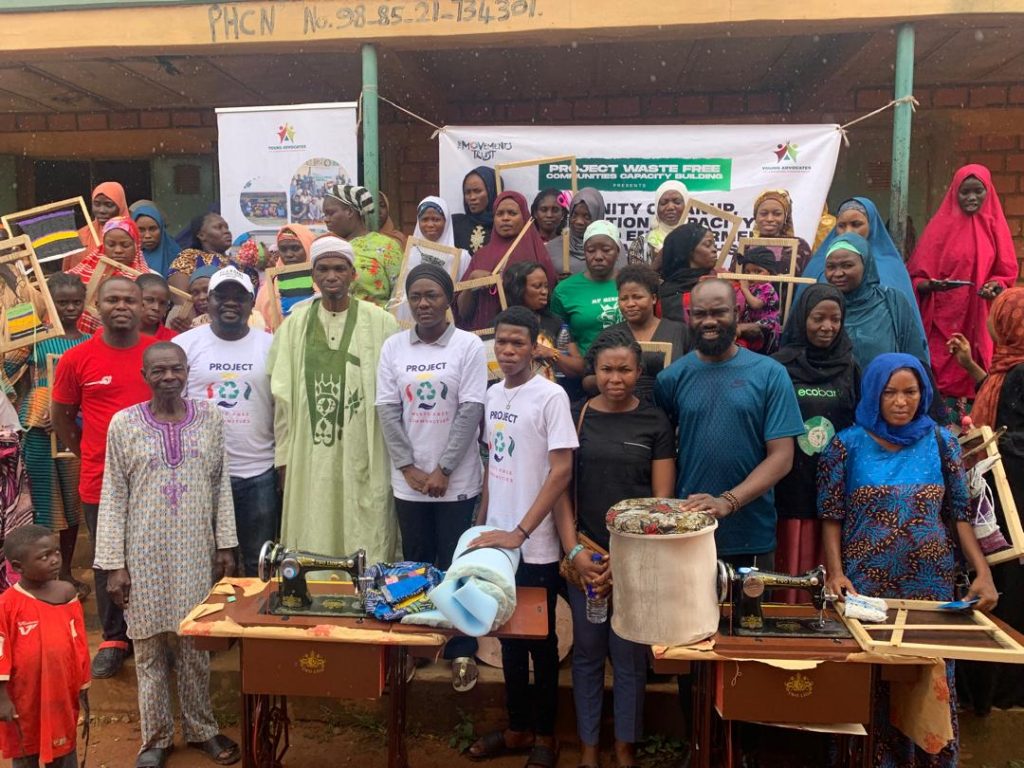From Plastic Pollution to Creativity: Ecocykle Trains Community Women in Nasarawa State

Nigeria generates over 2.5 million tonnes of plastic waste annually, with a significant portion ending up in drainage channels, rivers, and open dumps. This growing plastic crisis contributes to urban flooding, public health risks, and climate change. Nasarawa State, with its expanding peri-urban settlements and limited waste infrastructure, remains particularly vulnerable to these challenges.
In response to this pressing issue and in commemoration of the 2025 World Environment Day themed “Ending Global Plastic Pollution”, Ecocykle Development Foundation, with support from the Embassy of France in Nigeria and in partnership with the Nasarawa State Waste Management and Sanitation Authority (NASWAMSA), Climate and Sustainable Development Foundation, Ecosteward Humanitarian Foundation and YouPAD, organized a transformative community initiative titled “Plastics to Creative Crafts in Communities (P3C)”.

Held on June 21st, 2025 in Uke, Karu Local Government Area, the initiative focused on empowering 70 women through hands-on training in upcycling plastic waste into creative and marketable items such as jewelry and paper-based packaging. The training combined practical craft sessions with awareness on sustainable living and the environmental impacts of plastic pollution.
According to Lauritta Boniface, Executive Director of Ecocykle Development Foundation, there is wealth in waste.
As an organization, our focus is environmental sustainability and improving livelihood for vulnerable communities. This project is targeted at empowering the women in Uke communities to be able to combat the plastic waste in their environment while leveraging on it as a job opportunity. We are showing them that in waste, there is wealth
Another statement by Emmanuel Obinna Nweze, the Program Manager of Ecosteward Humanitarian Foundation noted the goal of the workshop.
This workshop aims to address two key problem; one is plastic waste and the second is women economic empowerment
Women were chosen as the primary beneficiaries due to their critical role in family and community life, with the program designed to not only mitigate plastic waste but also create alternative livelihoods for vulnerable women. Through this intervention, 35 women were trained in making eco-jewelry, while 35 others were taught to produce sustainable paper packaging—both viable small business opportunities.
Strategic stakeholder engagement, including remarks from NASWAMSA officials, reinforced the importance of integrating gender empowerment into environmental action. During a remark by the Director General of the Nasarawa State Waste Management and Sanitation Agency,
This is a happy day for us at Uke because our women are empowered to solve the plastic problem and also help themselves, further reducing crime in the community
To support business sustainability, 15 starter kits were donated to group representatives, alongside commitments for mentorship and scaling support. The next steps include a follow-up visit to Uke community for impact evaluation and potential replication of the program. The P3C initiative stands as a model for combining climate action, gender empowerment, and circular economy principles to drive sustainable development in vulnerable communities.





